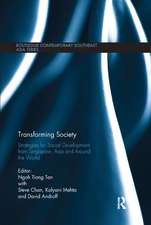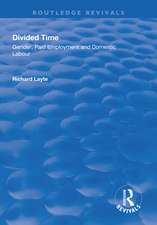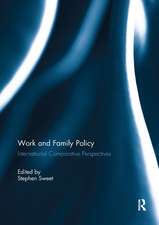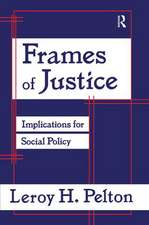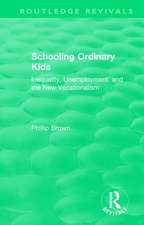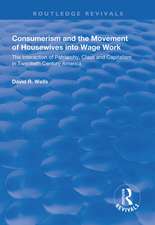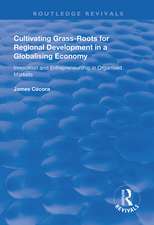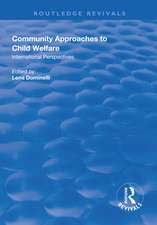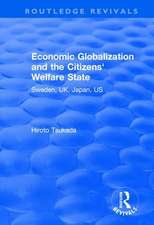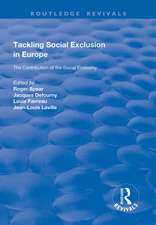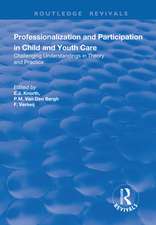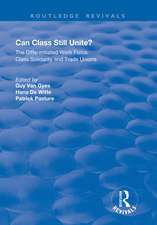Popular Culture and the Austerity Myth: Hard Times Today: Routledge Research in Cultural and Media Studies
Editat de Pete Bennett, Julian McDougallen Limba Engleză Paperback – 10 dec 2019
| Toate formatele și edițiile | Preț | Express |
|---|---|---|
| Paperback (1) | 368.60 lei 6-8 săpt. | |
| Taylor & Francis – 10 dec 2019 | 368.60 lei 6-8 săpt. | |
| Hardback (1) | 764.62 lei 6-8 săpt. | |
| Taylor & Francis – 10 noi 2016 | 764.62 lei 6-8 săpt. |
Din seria Routledge Research in Cultural and Media Studies
- 18%
 Preț: 702.10 lei
Preț: 702.10 lei -
 Preț: 311.81 lei
Preț: 311.81 lei -
 Preț: 309.27 lei
Preț: 309.27 lei -
 Preț: 311.61 lei
Preț: 311.61 lei -
 Preț: 349.09 lei
Preț: 349.09 lei - 9%
 Preț: 936.95 lei
Preț: 936.95 lei -
 Preț: 347.29 lei
Preț: 347.29 lei -
 Preț: 303.87 lei
Preț: 303.87 lei - 9%
 Preț: 934.94 lei
Preț: 934.94 lei -
 Preț: 272.01 lei
Preț: 272.01 lei -
 Preț: 311.41 lei
Preț: 311.41 lei -
 Preț: 238.37 lei
Preț: 238.37 lei -
 Preț: 391.02 lei
Preț: 391.02 lei -
 Preț: 334.02 lei
Preț: 334.02 lei -
 Preț: 303.87 lei
Preț: 303.87 lei -
 Preț: 401.72 lei
Preț: 401.72 lei -
 Preț: 309.50 lei
Preț: 309.50 lei -
 Preț: 310.85 lei
Preț: 310.85 lei -
 Preț: 309.38 lei
Preț: 309.38 lei -
 Preț: 310.45 lei
Preț: 310.45 lei -
 Preț: 311.88 lei
Preț: 311.88 lei -
 Preț: 309.50 lei
Preț: 309.50 lei -
 Preț: 417.28 lei
Preț: 417.28 lei -
 Preț: 489.66 lei
Preț: 489.66 lei - 18%
 Preț: 1222.80 lei
Preț: 1222.80 lei - 18%
 Preț: 1213.82 lei
Preț: 1213.82 lei -
 Preț: 421.07 lei
Preț: 421.07 lei - 18%
 Preț: 1051.33 lei
Preț: 1051.33 lei - 18%
 Preț: 1053.75 lei
Preț: 1053.75 lei -
 Preț: 438.73 lei
Preț: 438.73 lei - 18%
 Preț: 1108.14 lei
Preț: 1108.14 lei - 18%
 Preț: 1053.41 lei
Preț: 1053.41 lei - 18%
 Preț: 1046.15 lei
Preț: 1046.15 lei - 18%
 Preț: 1052.36 lei
Preț: 1052.36 lei - 18%
 Preț: 1047.19 lei
Preț: 1047.19 lei - 18%
 Preț: 1102.61 lei
Preț: 1102.61 lei - 18%
 Preț: 1053.06 lei
Preț: 1053.06 lei - 18%
 Preț: 1058.93 lei
Preț: 1058.93 lei - 18%
 Preț: 1109.51 lei
Preț: 1109.51 lei - 18%
 Preț: 1271.79 lei
Preț: 1271.79 lei - 18%
 Preț: 997.58 lei
Preț: 997.58 lei
Preț: 368.60 lei
Nou
Puncte Express: 553
Preț estimativ în valută:
70.59€ • 72.73$ • 59.14£
70.59€ • 72.73$ • 59.14£
Carte tipărită la comandă
Livrare economică 24 februarie-10 martie
Preluare comenzi: 021 569.72.76
Specificații
ISBN-13: 9780367874384
ISBN-10: 0367874385
Pagini: 254
Dimensiuni: 152 x 229 x 23 mm
Greutate: 0.34 kg
Ediția:1
Editura: Taylor & Francis
Colecția Routledge
Seria Routledge Research in Cultural and Media Studies
Locul publicării:Oxford, United Kingdom
ISBN-10: 0367874385
Pagini: 254
Dimensiuni: 152 x 229 x 23 mm
Greutate: 0.34 kg
Ediția:1
Editura: Taylor & Francis
Colecția Routledge
Seria Routledge Research in Cultural and Media Studies
Locul publicării:Oxford, United Kingdom
Public țintă
Postgraduate and UndergraduateCuprins
Part I: The Way We Live Now: Austerity Myths in Everyday Life
1. Trying to discern the impact of austerity in lived experience
Gargi Bhattachary
2. The allotment in the restaurant: the paradox of foody austerity and changing food values
Abigail Wincott
3. Snatches of Songs: Lyrical Reflections upon Alienation and Austerity, From Thatcher to Cameron’s Coalition
Allister Mactaggart
4. "Jolly Fucker": The Face of Farage
Julian McDougall
Part II: Popular Culture: Myths from the Front
5. "Actually we should be growing up": Neoliberalism & Austerity in NEON
Anne Graefer
6. Living in the Shadow of Manhattan: The White Knight Rises
Pete Bennett
7. (Negatively) Benefits Street: The Return of Naked Ideology
Julian McDougall
Part III: Out on the Streets: Myths and Acts of Resistance
8. From Hooverville to Bloomsbergville: Protest Camps and Cultural Imaginaries of Austerity in the United States
Anna Feigenbaum and Fabian Frenzel
9. On ready-made revolutions in the Arab world: how armchair journalism and citizen empowerment 2.0 fit into the rhetoric of contemporary neoliberal discourse
Donatella Della Ratta
10. Cinema America Occupato: Reclaiming the Cultural Commons With Slow Media
Antonio Lopez and Peter Sarram
Part IV: Popular Culture: Mythical Symmetries
11. Death and Dead End Jobs: Independent American Horror and the Great Recession
Craig Ian Mann
12. Poor Relations: Youth and Poverty in post-Millennial British Cinema
Dr Stella Hockenhull
13. Video games and representations of crime: the morality of criminality in an "age of austerity."
Wayne O’Brien
Afterword
Helen Davies and Claire O’Callaghan
1. Trying to discern the impact of austerity in lived experience
Gargi Bhattachary
2. The allotment in the restaurant: the paradox of foody austerity and changing food values
Abigail Wincott
3. Snatches of Songs: Lyrical Reflections upon Alienation and Austerity, From Thatcher to Cameron’s Coalition
Allister Mactaggart
4. "Jolly Fucker": The Face of Farage
Julian McDougall
Part II: Popular Culture: Myths from the Front
5. "Actually we should be growing up": Neoliberalism & Austerity in NEON
Anne Graefer
6. Living in the Shadow of Manhattan: The White Knight Rises
Pete Bennett
7. (Negatively) Benefits Street: The Return of Naked Ideology
Julian McDougall
Part III: Out on the Streets: Myths and Acts of Resistance
8. From Hooverville to Bloomsbergville: Protest Camps and Cultural Imaginaries of Austerity in the United States
Anna Feigenbaum and Fabian Frenzel
9. On ready-made revolutions in the Arab world: how armchair journalism and citizen empowerment 2.0 fit into the rhetoric of contemporary neoliberal discourse
Donatella Della Ratta
10. Cinema America Occupato: Reclaiming the Cultural Commons With Slow Media
Antonio Lopez and Peter Sarram
Part IV: Popular Culture: Mythical Symmetries
11. Death and Dead End Jobs: Independent American Horror and the Great Recession
Craig Ian Mann
12. Poor Relations: Youth and Poverty in post-Millennial British Cinema
Dr Stella Hockenhull
13. Video games and representations of crime: the morality of criminality in an "age of austerity."
Wayne O’Brien
Afterword
Helen Davies and Claire O’Callaghan
Notă biografică
Pete Bennett is Senior Lecturer in Postcompulsory Education at University of Wolverhampton, UK.
Julian McDougall is Head of the Centre for Excellence in Media Practice and Associate Professor in Media and Education at Bournemouth University, UK.
Julian McDougall is Head of the Centre for Excellence in Media Practice and Associate Professor in Media and Education at Bournemouth University, UK.
Descriere
Contemporary popular culture is engaged in a rich and multi-levelled set of representational relations with austerity. This volume seeks to explore these relations, to ask: how does popular culture give expression to austerity; how are its effects conveyed; how do texts reproduce and expose its mythic qualities?

